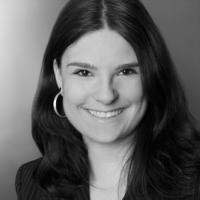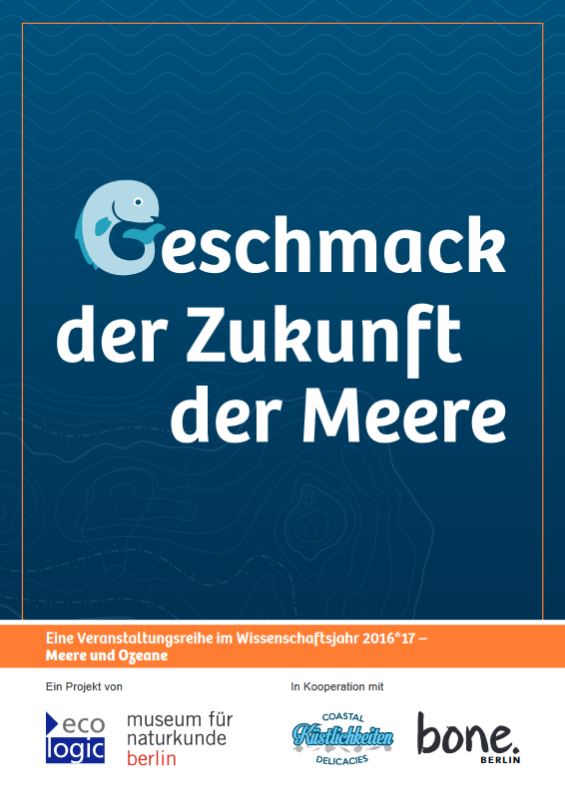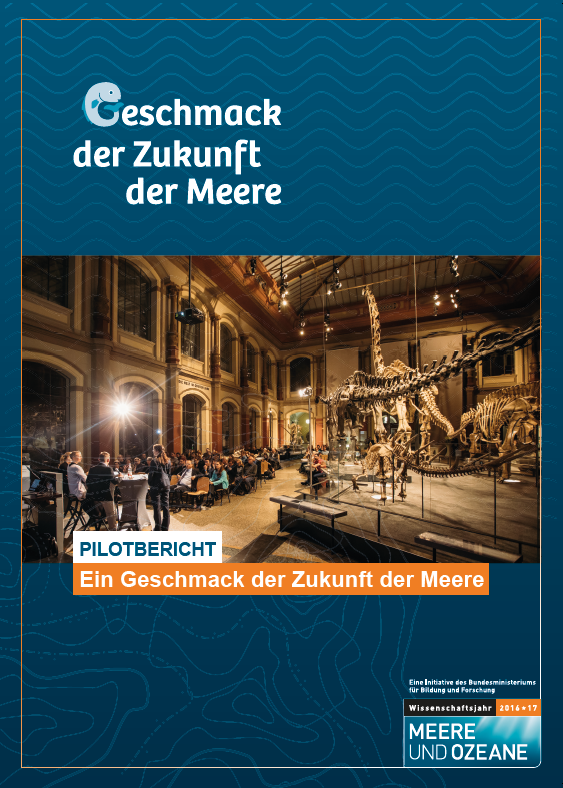Science Sips on Marine Biodiviersity in the Science Year 2016*17 – Seas and Oceans
- Event
- Date
-
- Location
- Berlin, Germany
The third Science Sips event event once again offered the opportunity to discuss mare topics together with by-catch curry or seaweed cocktails. At the event on 21 June 2017, three short presentations on the subject of biodiversity of the oceans were presented. Additionally, the winners of the recipe contest "Klug gefischt/Smart fishing" were honored during this event. The recipe contest was conceived as part of the Science Year 2016*17 – Seas and Oceans, funded by the German Federal Ministry for Education and Research, together with EDEKA and WWF, in an aim to sensitize sustainable fishing within the framework of marine science. Selected from over 250 submitted recipes, the three winners were honored by Prof. Dr. Johanna Wanka, Federal Minister for Education and Research, and Barbara Meier, WWF Ambassador for abandoned fishing nets.
The oceans and seas provide habitats to around one million animal and plant species, as well as over a billion species of microbes. However, we consume only a limited amount of these million spe-cies. Human activities have an ever greater impact on the seas and the biodiversity they sustain. At this Science Sips event, talks and a following interactive discussion focused on the link between marine biodiversity and our seafood consumption.
Dr. Daniel Carstensen, expert for sustainable fishery products at WWF, gave an overview of the status quo in the production of wild fish and aquaculture in his lecture and provided guidance for the purchase of fish and seafood for consumers.
Dr. Astrid Gärdes, head of the working group tropical marine microbiology at the Leibniz-Centre for Tropical Marine Biology, reported on "Environmental impacts of aquaculture - How do bacteria react in tropical coastal ecosystems?" In her lecture she explained that bacteria are an important basis for the whole marine food chain and highlighted in particular the relationship between bacteria and corals and the dangers that aquaculture can cause.
Dr. Charles Oliver Coleman, the custodian of the collection of crustaceans (crabs) and protozoa (single-cell organisms) at the Museum of Natural History Berlin focused his presentation on crustaceans. Especially, he discussed if Krill, North Sea Shrimp and Lobster are suitable for sustainable consumption.
The evening was moderated by Dr. Camilla Bausch, Director of Ecologic Institute.
After the discussion, participants got to enjoy street food and drinks made from sustainable sea-food, provided by the culinary partners Küstlichkeiten and Bone.Berlin, and took the chance to discuss further with the experts in an informal setting at "Ask a Scientist" tables.
The last Science Sips will take place on 19 July 2017 on the subject of fisheries policy.
All events in the project "Taste of the Future of the Seas" are in German.





